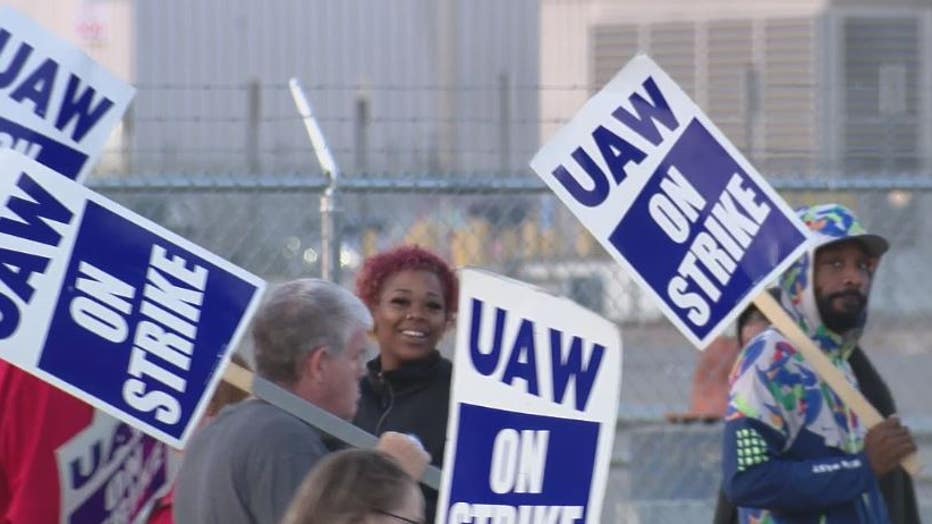Analyst: UAW strike with parts facilities will put more pressure on Big Three
Some optimism among UAW strikers outside Ford's Michigan Assembly Plant in Wayne
As Phase 2 of the UAW strike with the Big Three began Friday, a glimmer of hope emerged from union negotiations with Ford.
WAYNE, Mich. (FOX 2) - On Friday night there was a party atmosphere outside Ford's Michigan Assembly Plant where UAW members marked one week since their walkout.
A dance floor, robot costume and party lights were on display on the same day the union announced that progress with Ford Motor Company has been made in negotiations.
Among the details of progress, Ford says that some tiers are gone. Cost of living adjustments have been restored and profit sharing options are improving.
But as Phase 2 of the strike is now underway, UAW President Shawn Fain expanded the strike to 38 GM and Stellantis facilities with 5,500 workers in 20 states. Part service centers and distribution centers were the targeted locations.
"We're standing strong, we're going to keep standing strong," said one worker.
"Yeah. There seems to be some good progress," said another worker. "We’re all hopeful that it’s going to be a good change for everybody."
But at General Motors and Stellantis, labor and auto bosses are still nowhere near a deal.
"This affects not so much new cars, but it affects consumers and dealers," said Alan Amici.
Amici is the president and CEO of the Center for Automotive Research. He explained the direct impact of the expanded strike to the everyday driver.
"When consumers need to bring on their car for a repair or a recall, these parts may not be available," he said. "And so it’s going to create quite a bit of pressure on the automakers to settle the strike from the consumer point of view."
"That was the point," said a UAW member. "They said we got to stand strong and we have to systematically shut them down, so be it."
Related:
- Striking UAW members fight man outside Stellantis plant claiming he yelled racial slurs
- How long could the UAW strike last? Here's how much strike pay the union has saved
- UAW strike: President Joe Biden to speak in Michigan in support of union
Meantime Stellantis hit back at the UAW’s claims of bad faith deal-making over cost-of-living adjustments, profit-sharing and job security saying Stellantis presented a very competitive offer to the union and never got a response.
"I hope we get this settled," said Amici. "This is unsettling for employees out on strike because of the lost revenue. This is unsettling for the automakers because it’s lost revenue. It’s unsettling for the local economies that are affected in these areas - people aren’t going out to lunch. They tightened the belt a little bit so there’s a lot of money that’s lost in this."


